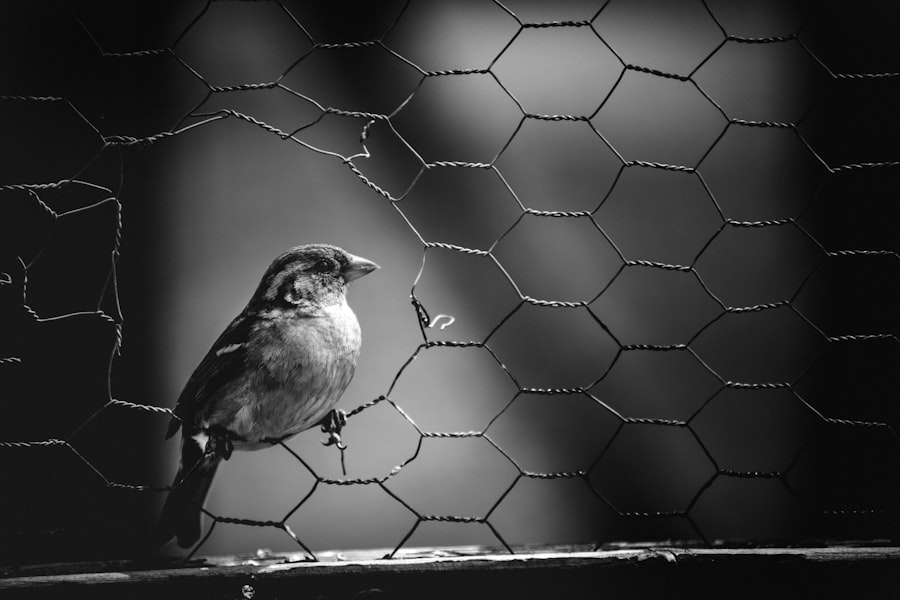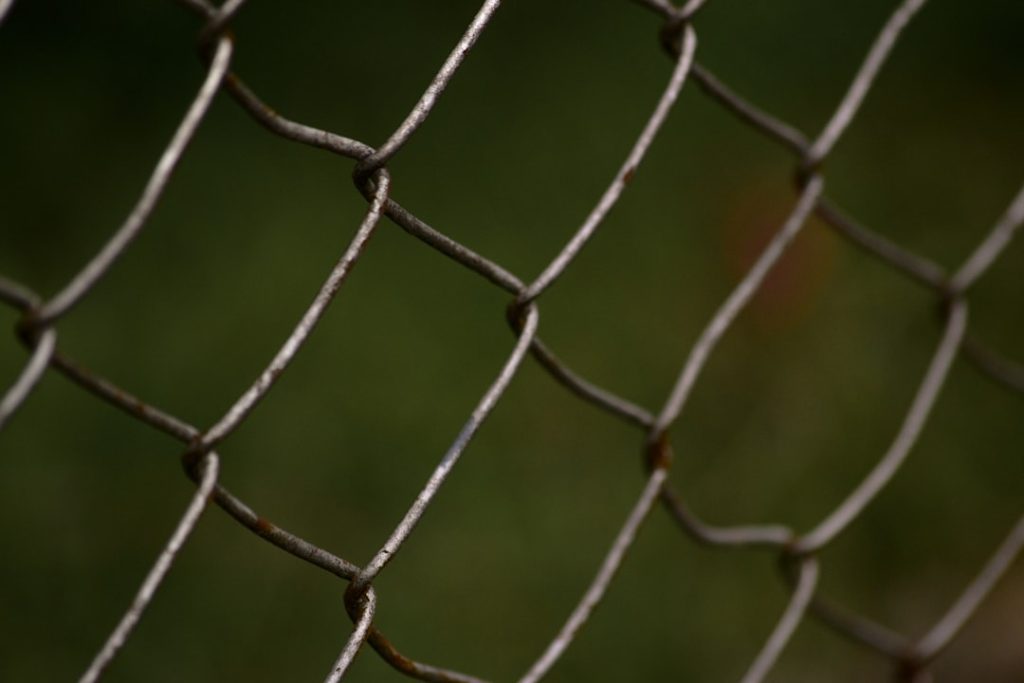Chickens are naturally curious and social animals with a tendency to explore their surroundings. They exhibit scratching and pecking behaviors, which can lead to damage in gardens and landscaped areas. Understanding chicken behavior is essential for developing effective strategies to keep them out of unwanted areas.
Chickens are attracted to loose soil, which allows them to scratch and forage for insects and other food sources. They also prefer areas with lush vegetation for shade and shelter. As territorial animals, chickens may be more likely to venture into areas they perceive as their own.
These birds are creatures of habit, often following established paths and routines. Once they find a way into a garden or landscaped area, they are likely to continue using the same route. This behavior makes it important to address the issue promptly and consistently.
Chickens have a strong sense of curiosity and are constantly searching for new food sources and interesting places to explore. This natural behavior can lead them to venture into gardens and landscaped areas, potentially causing damage through scratching and pecking. To deter chickens from entering unwanted areas, creating physical barriers in locations with loose soil or lush vegetation can be effective.
Additionally, providing alternative areas for foraging can help redirect their natural behaviors away from gardens and landscaping. Understanding and addressing these behavioral patterns is crucial for successfully managing chicken access to specific areas.
Table of Contents
- 1 Creating Physical Barriers
- 2 Using Natural Deterrents
- 3 Implementing Repellents
- 4 Utilizing Chicken-Proof Landscaping Techniques
- 5 Providing Alternative Areas for Foraging
- 6 Consistent Monitoring and Maintenance
- 7 FAQs
- 7.1 What are some effective ways to keep chickens out of landscaping?
- 7.2 What type of fencing is best for keeping chickens out of landscaping?
- 7.3 What are some examples of physical barriers to keep chickens out of landscaping?
- 7.4 What types of repellents can be used to keep chickens out of landscaping?
- 7.5 How can providing alternative areas for chickens to roam help keep them out of landscaping?
Key Takeaways
- Chickens are naturally curious and will explore their surroundings, so understanding their behavior is key to preventing them from entering unwanted areas.
- Physical barriers such as fences and netting can effectively keep chickens out of specific areas, such as gardens or flower beds.
- Natural deterrents like predator decoys, motion-activated sprinklers, or reflective objects can help keep chickens away from certain areas.
- Repellents such as citrus peels, garlic, or hot pepper spray can be used to discourage chickens from entering specific areas.
- Landscaping techniques such as raised beds, mulching, and using chicken-resistant plants can help create a chicken-proof environment.
Creating Physical Barriers
Creating Physical Barriers
One effective way to keep chickens out of gardens and landscaping is by creating physical barriers. This can be achieved through the use of fencing, netting, or other materials that prevent chickens from accessing the area. Fencing can be particularly effective in keeping chickens out of specific areas, such as vegetable gardens or flower beds.
Types of Physical Barriers
It is important to ensure that the fencing is tall enough to prevent chickens from flying over it, and that it is securely anchored to the ground to prevent them from digging underneath it. Netting can also be used to create physical barriers, particularly in areas with lush vegetation that may attract chickens. By covering plants with netting, it becomes more difficult for chickens to access them, thus reducing the likelihood of damage. Additionally, using materials such as chicken wire or hardware cloth can help create barriers around specific plants or landscaping features that need protection.
Raised Beds and Enclosed Structures
In addition to fencing and netting, other physical barriers such as raised beds or enclosed structures can also be effective in keeping chickens out of gardens and landscaping. Raised beds elevate plants above ground level, making them less accessible to chickens. Enclosed structures such as chicken wire cages or cloches can provide additional protection for individual plants or small areas within a garden.
Effectiveness and Considerations
Creating physical barriers is an effective way to keep chickens out of gardens and landscaping. Fencing, netting, raised beds, and enclosed structures can all help prevent chickens from accessing specific areas and causing damage. By understanding the behavior of chickens and implementing appropriate physical barriers, it becomes possible to protect gardens and landscaping from the potential harm caused by these curious and explorative animals. It is important to ensure that any physical barriers are tall enough to prevent chickens from flying over them, and that they are securely anchored to the ground to prevent digging underneath.
Using Natural Deterrents

In addition to physical barriers, natural deterrents can also be used to keep chickens out of gardens and landscaping. These deterrents take advantage of the natural instincts and aversions of chickens to discourage them from entering specific areas. One common natural deterrent is the use of predator decoys or scare devices.
Chickens are naturally wary of predators such as hawks, owls, and other birds of prey, so placing decoys or using scare devices that mimic these predators can help deter chickens from entering an area. Another natural deterrent is the use of strong-smelling plants or herbs that chickens find unappealing. Plants such as lavender, mint, or rosemary have strong scents that can repel chickens and discourage them from entering specific areas.
These plants can be strategically placed around gardens or landscaping to create a natural barrier that deters chickens from causing damage. Additionally, using reflective materials such as shiny objects or mirrors can also help deter chickens from entering specific areas. Chickens are naturally curious animals, and they may be startled or deterred by unexpected reflections or movements.
By strategically placing reflective materials around gardens or landscaping, it becomes possible to create a deterrent that discourages chickens from causing damage. Using natural deterrents is an effective way to keep chickens out of gardens and landscaping without causing harm to the animals themselves. Predator decoys, strong-smelling plants, and reflective materials can all be used to create natural barriers that discourage chickens from entering specific areas.
By understanding the behavior of chickens and implementing appropriate natural deterrents, it becomes possible to protect gardens and landscaping from potential damage caused by these curious and explorative animals. Natural deterrents can be an effective way to keep chickens out of gardens and landscaping without causing harm to the animals themselves. Predator decoys, strong-smelling plants, and reflective materials can all be used to create natural barriers that discourage chickens from entering specific areas.
By understanding the behavior of chickens and implementing appropriate natural deterrents, it becomes possible to protect gardens and landscaping from potential damage caused by these curious and explorative animals.
Implementing Repellents
In addition to physical barriers and natural deterrents, repellents can also be used to keep chickens out of gardens and landscaping. Repellents work by creating unpleasant or aversive experiences for chickens that discourage them from entering specific areas. One common type of repellent is the use of taste deterrents, which are applied directly to plants or landscaping features that need protection.
These taste deterrents have a bitter or unpleasant flavor that discourages chickens from pecking or eating the treated plants. Another type of repellent is the use of scent deterrents, which rely on strong-smelling substances that chickens find unappealing. These scent deterrents can be applied directly to plants or landscaping features, or they can be dispersed in the surrounding area using sprays or diffusers.
Substances such as garlic oil, hot pepper spray, or vinegar can all be used as scent deterrents to discourage chickens from entering specific areas. Additionally, motion-activated repellents can also be used to deter chickens from entering specific areas. These devices use sensors to detect the presence of chickens and then emit a sudden burst of noise, water, or air that startles the animals and encourages them to leave the area.
Motion-activated repellents can be particularly effective in deterring chickens from causing damage in specific locations within gardens or landscaping. Implementing repellents is an effective way to keep chickens out of gardens and landscaping without causing harm to the animals themselves. Taste deterrents, scent deterrents, and motion-activated repellents can all be used to create aversive experiences that discourage chickens from entering specific areas.
By understanding the behavior of chickens and implementing appropriate repellents, it becomes possible to protect gardens and landscaping from potential damage caused by these curious and explorative animals. Implementing repellents is an effective way to keep chickens out of gardens and landscaping without causing harm to the animals themselves. Taste deterrents, scent deterrents, and motion-activated repellents can all be used to create aversive experiences that discourage chickens from entering specific areas.
By understanding the behavior of chickens and implementing appropriate repellents, it becomes possible to protect gardens and landscaping from potential damage caused by these curious and explorative animals.
Utilizing Chicken-Proof Landscaping Techniques
In addition to creating physical barriers, using natural deterrents, and implementing repellents, there are several chicken-proof landscaping techniques that can help protect gardens and landscaping from potential damage caused by these curious animals. One effective technique is the use of raised beds or containers for planting. By elevating plants above ground level in raised beds or containers, it becomes more difficult for chickens to access them and cause damage through scratching or pecking.
Another technique is the use of mulch or ground cover around plants and landscaping features. Mulch or ground cover provides a protective layer that helps prevent chickens from scratching at the soil around plants. Additionally, using materials such as gravel or rocks as ground cover can create an unappealing surface for chickens to scratch at, thus reducing the likelihood of damage.
Furthermore, using hardscaping features such as pathways, patios, or retaining walls can help create defined boundaries that deter chickens from entering specific areas. Hardscaping features provide a clear separation between garden spaces and other areas where chickens are not welcome. By incorporating hardscaping into landscaping designs, it becomes possible to create chicken-proof zones that are less likely to attract these curious animals.
Utilizing chicken-proof landscaping techniques is an effective way to protect gardens and landscaping from potential damage caused by chickens. Raised beds, containers, mulch, ground cover, and hardscaping features can all help create barriers that deter chickens from causing harm in specific areas. By understanding the behavior of chickens and implementing appropriate landscaping techniques, it becomes possible to maintain beautiful and productive outdoor spaces without interference from these curious and explorative animals.
Utilizing chicken-proof landscaping techniques is an effective way to protect gardens and landscaping from potential damage caused by chickens. Raised beds, containers, mulch, ground cover, and hardscaping features can all help create barriers that deter chickens from causing harm in specific areas. By understanding the behavior of chickens and implementing appropriate landscaping techniques, it becomes possible to maintain beautiful and productive outdoor spaces without interference from these curious and explorative animals.
Providing Alternative Areas for Foraging

Designated Foraging Spaces
By creating designated foraging spaces for chickens, it becomes possible to satisfy their natural instincts while minimizing potential damage in gardens and landscaping. One option is the use of chicken tractors or portable enclosures that can be moved around outdoor spaces to provide access to fresh foraging opportunities.
Foraging Areas within Larger Outdoor Spaces
Another option is the use of designated foraging areas within larger outdoor spaces such as yards or pastures. By designating specific areas where chickens are encouraged to scratch and peck for food sources, it becomes possible to redirect their natural behaviors away from gardens and landscaping. These designated foraging areas can be equipped with features such as loose soil, compost piles, or insect habitats that provide ample opportunities for chickens to satisfy their natural instincts.
Enrichment Activities
Furthermore, incorporating enrichment activities such as hanging treats or toys in designated foraging areas can help keep chickens engaged and occupied while minimizing their interest in exploring other parts of outdoor spaces. By providing alternative areas for foraging that cater to the natural behaviors of chickens, it becomes possible to reduce their impact on gardens and landscaping while promoting their overall well-being.
By understanding the behavior of chickens and providing appropriate opportunities for foraging, it becomes possible to maintain beautiful outdoor spaces without interference from these curious animals.
Consistent Monitoring and Maintenance
Consistent monitoring and maintenance are essential in keeping chickens out of gardens and landscaping over time. Regularly inspecting physical barriers such as fencing or netting helps ensure that they remain intact and effective in deterring chickens from entering specific areas. It is important to repair any damaged or weakened barriers promptly in order to maintain their effectiveness in keeping chickens out.
Additionally, regularly applying natural deterrents such as predator decoys or scent repellents helps ensure that they continue to discourage chickens from entering sensitive areas within gardens and landscaping. Reapplying these deterrents as needed helps maintain their effectiveness over time while minimizing potential damage caused by curious animals. Furthermore, consistently providing alternative areas for foraging helps redirect the natural behaviors of chickens away from sensitive garden spaces while promoting their overall well-being.
Regularly moving chicken tractors or portable enclosures provides access to fresh foraging opportunities while minimizing their impact on specific outdoor spaces. Consistent monitoring and maintenance are essential in keeping chickens out of gardens and landscaping over time. Regularly inspecting physical barriers such as fencing or netting helps ensure that they remain intact and effective in deterring chickens from entering specific areas.
It is important to repair any damaged or weakened barriers promptly in order to maintain their effectiveness in keeping chickens out. Additionally, regularly applying natural deterrents such as predator decoys or scent repellents helps ensure that they continue to discourage chickens from entering sensitive areas within gardens and landscaping. Reapplying these deterrents as needed helps maintain their effectiveness over time while minimizing potential damage caused by curious animals.
Furthermore, consistently providing alternative areas for foraging helps redirect the natural behaviors of chickens away from sensitive garden spaces while promoting their overall well-being. Regularly moving chicken tractors or portable enclosures provides access to fresh foraging opportunities while minimizing their impact on
If you’re looking for more tips on keeping chickens, you might want to check out this article on creating a Hannah Montana chicken coop. It offers some creative ideas for designing a coop that not only keeps your chickens safe and happy but also adds a unique touch to your landscaping.
FAQs
What are some effective ways to keep chickens out of landscaping?
Some effective ways to keep chickens out of landscaping include using fencing, creating physical barriers, using repellents, and providing alternative areas for the chickens to roam.
What type of fencing is best for keeping chickens out of landscaping?
A sturdy wire or mesh fencing that is at least 4 feet tall and buried at least 6 inches into the ground is best for keeping chickens out of landscaping. This type of fencing will prevent chickens from digging under or flying over it.
What are some examples of physical barriers to keep chickens out of landscaping?
Examples of physical barriers to keep chickens out of landscaping include using chicken wire or netting to cover plants, installing raised garden beds, and using cloches or cages to protect individual plants.
What types of repellents can be used to keep chickens out of landscaping?
Repellents such as citrus peels, garlic, hot pepper spray, or commercial animal repellents can be used to deter chickens from entering landscaped areas. These repellents can be applied directly to plants or around the perimeter of the landscaping.
How can providing alternative areas for chickens to roam help keep them out of landscaping?
By providing chickens with designated areas to roam, such as a fenced-in yard or a chicken run, they are less likely to venture into landscaped areas. This can help minimize the damage they cause to plants and gardens.
Meet Walter, the feathered-friend fanatic of Florida! Nestled in the sunshine state, Walter struts through life with his feathered companions, clucking his way to happiness. With a coop that’s fancier than a five-star hotel, he’s the Don Juan of the chicken world. When he’s not teaching his hens to do the cha-cha, you’ll find him in a heated debate with his prized rooster, Sir Clucks-a-Lot. Walter’s poultry passion is no yolk; he’s the sunny-side-up guy you never knew you needed in your flock of friends!







